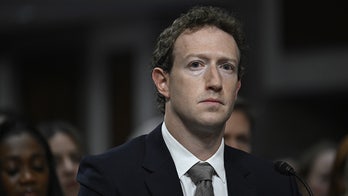
Shown here are House Speaker John Boehner, left, and House Minority Leader Nancy Pelosi. (AP)
Lawmakers dug in their heels on the terms for a debt-ceiling deal Friday, following a warning from a top rating agency that it might downgrade the country's credit score out of concern the two parties are incapable of cooperating.
Republicans insisted Friday that they absolutely will not raise taxes, something Democrats want for top earners.
"Everything's on the table except raising taxes on the very people we expect to create jobs," House Speaker John Boehner told reporters, citing the latest dismal unemployment report that showed the economy only added 54,000 jobs last month.
On the other side, Democrats began to insist that Medicare be off the table entirely during the talks, though House Republicans have virtually staked their long-term spending plan on big changes to the entitlement program for seniors.
Sens. Tom Harkin, D-Iowa, and Jack Reed, D-R.I., both said Medicare should be left out of the debate, calling Republicans "irresponsible" for placing "ideological" demands on the debt talks.
The disagreements underscored the severity of the impasse, as the White House scours for common ground. Republicans want to extract significant spending cuts as a condition for supporting an increase in the $14.3 trillion debt ceiling. But with no deal in sight, Treasury Secretary Tim Geithner continues to warn that the country could face the possibility of default if the ceiling is not raised by Aug. 2.
The stand-off prompted leading investment agency Moody's to issue a strong warning Thursday to the U.S. government.
Moody's Investor's Service said it would place the government's sterling Aaa rating under review for a possible downgrade due to the "very small but rising risk" of a short-lived default if the White House and congressional leaders can't agree on raising the nation's debt ceiling.
Further, Moody's warned that if Congress cannot come to a deficit-reduction agreement it could be compelled to downgrade the country's credit outlook to negative.
The principal reason cited by Moody's was that lawmakers were not budging on their positions over the budget.
"Although Moody's fully expected political wrangling prior to an increase in the statutory debt limit, the degree of entrenchment into conflicting positions has exceeded expectations. The heightened polarization over the debt limit has increased the odds of a short-lived default," Moody's said in a statement.
Moody's announcement followed the lead set by S&P, which announced in April that it was downgrading the U.S. credit outlook to negative over the nation's mounting debt.
Both parties claimed the latest warning underscored their position in the deadlocked debate.
The White House said Friday the report backed up its claims about the importance of fulfilling the country's financial obligations and not defaulting on the debt.
Boehner claimed the report reinforced the GOP demand that lawmakers must agree to spending cuts exceeding the amount by which the debt limit would be increased.




